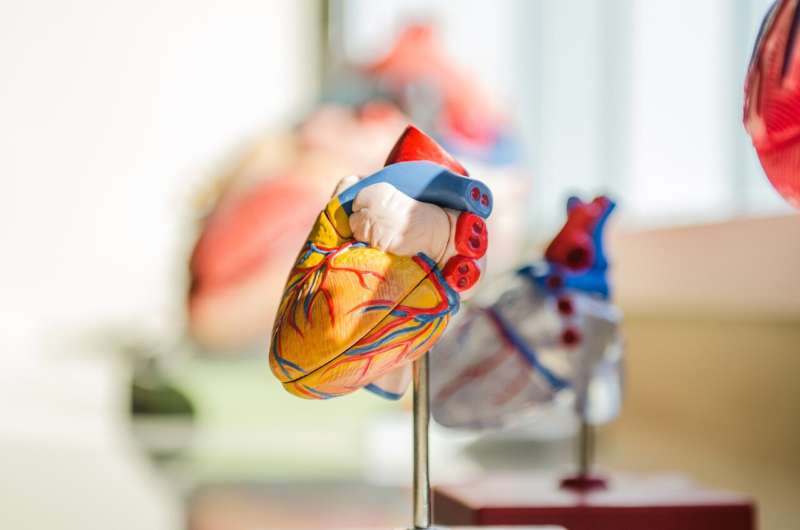New Mechanisms Linking Neuroinflammation to Memory Loss Uncovered

Recent studies reveal how neuroinflammation induces memory loss through epigenetic DNA modifications in neurons, opening new pathways for therapeutic interventions in neurodegenerative diseases.
Recent research has provided new insights into how chronic neuroinflammation contributes to memory decline, focusing on epigenetic modifications within neurons. Neuroinflammation, a prolonged activation of the brain’s immune system often triggered by infections such as Toxoplasma gondii or factors like COVID-19, has been associated with various neurodegenerative diseases. During inflammation, immune cells release cytokines like interleukin-1 (IL-1), which act as signaling proteins that influence brain function.
A groundbreaking study conducted by scientists at the University of Toulouse, linked the parasite T. gondii to persistent neuroinflammation and subsequent cognitive impairments. Their research, published in Nature Neuroscience, examined how this parasite can remain dormant inside neurons, continuously fueling inflammatory responses, and disrupting memory processes.
One key finding revealed that the inflammatory mediator IL-1 plays a critical role in altering neuronal epigenetics—the structural modifications of DNA that do not change the genetic code but influence gene expression. This epigenetic regulation is essential for healthy neuronal function, especially in the hippocampus, a brain area fundamental for spatial memory.
The team investigated the effects of IL-1 using mouse models. They either mimicked chronic inflammation through parasite infection or elevated systemic IL-1 levels by infusing the cytokine. In both scenarios, they observed that increased IL-1 activity led to DNA damage in neurons marked by double-strand breaks, which affected the neurons' ability to properly encode and recall spatial memories.
Furthermore, the researchers demonstrated that blocking the neuronal response to DNA damage signals or the IL-1 receptor could prevent memory deficits, even amid sustained inflammation. This suggests potential therapeutic strategies targeting cytokine signaling or neuronal DNA repair mechanisms to counteract memory impairments linked to neuroinflammation.
The study underscores that neuroinflammation influences neuronal health through epigenetic pathways, by modifying DNA structure without altering the sequence. Specifically, IL-1 disrupts the delicate balance of DNA repair processes necessary for maintaining cognitive functions. These findings have broad implications, considering IL-1 levels are elevated in numerous chronic inflammatory and neurodegenerative conditions, such as depression and Alzheimer’s disease.
If future research validates these mechanisms in humans, they could pave the way for novel treatments aimed at mitigating memory impairments caused by chronic inflammation. By targeting inflammatory cytokines or enhancing DNA repair pathways, it may be possible to develop new therapies for neurodegenerative diseases and other memory-related disorders.
Overall, this research highlights the importance of managing neuroinflammation and understanding epigenetic regulation in preserving cognitive health, offering hope for interventions to prevent or reduce inflammation-driven memory decline.
Stay Updated with Mia's Feed
Get the latest health & wellness insights delivered straight to your inbox.
Related Articles
New Study Highlights Sex and Type Differences in Cardiovascular Risks for Diabetes Patients
A large-scale study compares cardiovascular disease risk between men and women with type 1 and type 2 diabetes, revealing important sex and age-related differences in outcomes and emphasizing the need for tailored management strategies.
Novel Drug Candidate Shows Promise in Combatting Aggressive Brain Tumors by Targeting Cellular Motors
A groundbreaking study introduces MT-125, a new experimental drug that targets cellular motors to fight aggressive brain tumors, opening new pathways for glioblastoma treatment.
New Insights into MYOD: The Dual Role of a Muscle Regulator as a Gene Silencer
New research reveals that MYOD, a key muscle master regulator, also functions as a gene silencer by binding to non-E-box DNA regions to repress prior gene expression, playing a crucial role in cellular reprogramming and muscle regeneration.
Potential Benefits of Potassium Supplements in Reducing Heart Failure Risk
Emerging research suggests that maintaining high-normal potassium levels may help lower the risk of heart failure and arrhythmias in high-risk patients. Learn about the latest findings and safe management tips.



